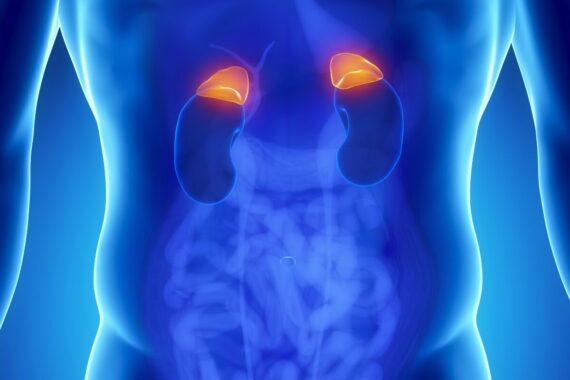Emergency steroid kits should be provided routinely in adrenal insufficiency, says NICE

People with adrenal insufficiency should be issued with emergency kits containing steroid injections to avoid hospital admission, NICE has recommended.
Two or three kits should be provided to people with primary and secondary adrenal insufficiency containing an intramuscular hydrocortisone injection, syringes and needles and easy to understand instructions.
Training should also be provided to patients, close family members and carers on how and when to use the kits, NICE said in a clinical guideline on identification and management of adrenal insufficiency.
The emergency kits should also be considered for people aged 16 and over with tertiary adrenal insufficiency and a history of adrenal crisis as well as children and young people with the condition.
Current provision of the kits is variable, the NICE guideline committee said but they calculated that making them available was cost effective.
The guidelines also remind people with adrenal insufficiency to increase the dose of their oral glucocorticoid if they are unwell, and to call 999 or attend an emergency department if think they are developing an adrenal crisis.
It follows figures showing there were 1,220 hospital admissions in 2022/23 for adrenal crisis.
People with adrenal insufficiency should also be given information on how to obtain an NHS Steroid Emergency card and medical alert jewellery.
The condition should be considered in people with unexplained hyperpigmentation, or when there is no other clinical explanation for the presence of one or more persistent symptoms that include weight loss, nausea or vomiting, lack of appetite, early puberty, lethargy and feelings of muscle weakness.
Doctors should also be aware that hyperpigmentation may not be seen on black or brown skin, NICE said.
Most people with the condition live active lives with few limitations and the guideline is intended to help them manage the condition and keep themselves safe, said Professor Jonathan Benger, chief medical officer and deputy chief executive.
‘This useful and useable guideline will help to ensure high quality care is offered to people with this condition and support them, their families and carers to make informed decisions about their treatment and long-term care.’
It is estimated that between 5,700 and 7,900 people in England have primary adrenal insufficiency (Addison’s Disease) and between 8,500 and 15,800 people have the more common secondary adrenal insufficiency.
Chloe Mezzetti, who has Addison’s disease and is a former lay member of NICE’s guideline committee, said an emergency hydrocortisone injection kit should always be prescribed after diagnosis to prevent a potentially fatal adrenal crisis.
‘Due to being a rare condition, this has not always been the case for our community. It is fantastic these affordable and widely available emergency injection kits are one of the new recommendations in the NICE guidelines – saving lives. I always carry my injection kit in my bag, and I also have a backup kit which I keep in my car.’
Pulse July survey
Take our July 2025 survey to potentially win £1.000 worth of tokens

Visit Pulse Reference for details on 140 symptoms, including easily searchable symptoms and categories, offering you a free platform to check symptoms and receive potential diagnoses during consultations.
Related Articles
READERS' COMMENTS [3]
Please note, only GPs are permitted to add comments to articles



 Oviva’s fully remote Tier 3 Weight Management programme
Oviva’s fully remote Tier 3 Weight Management programme








what could possibly go wrong
My son is prescribed these but the guidance is if you need to use them then you need to call 999 as well so not quite sure how it’s supposed to reduce hospital admissions ??
Jon Bon Jovi song-“Bad Medicine” prevents admission if they dont bother then seeking medical help, and dont die..?